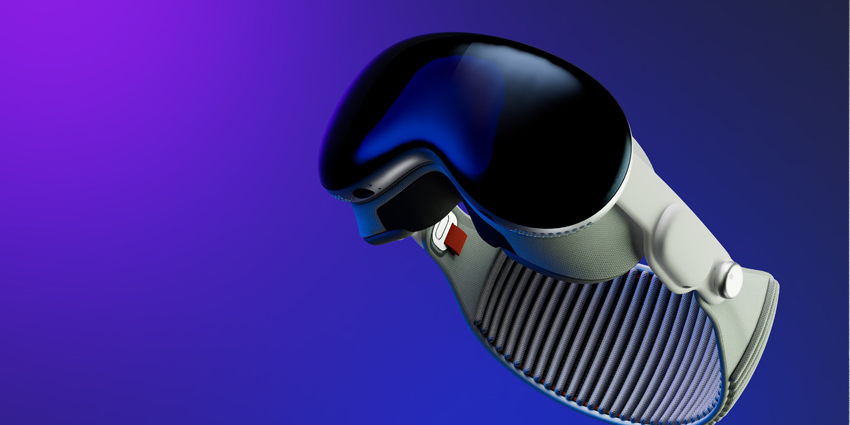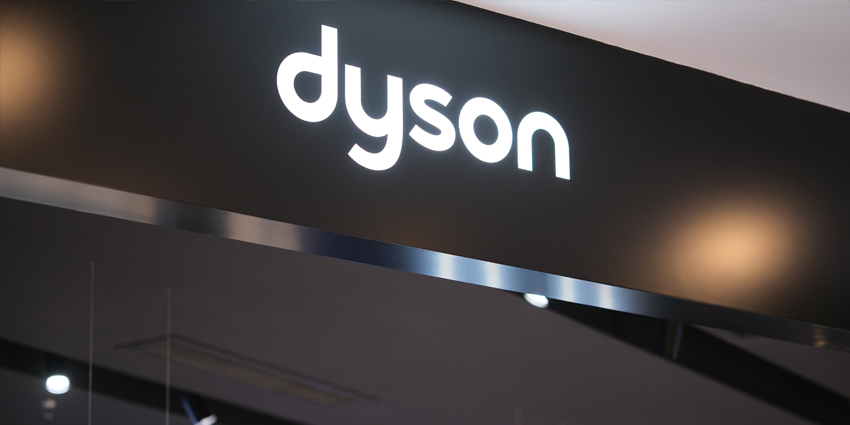The demand for smart glasses in the XR space is accelerating at an incredible pace. As companies continue to discover new methods for producing lightweight, wearable devices, the number of immersive tools in this landscape is growing.
Today, the market for smart glasses is growing at a CAGR of 10.3%, expected to reach a value of around $12.76 billion by 2030. In this industry, developers are experimenting with ever-more intuitive screens, lenses, and accompanying XR technologies to create solutions for a range of industries.
So, which vendors are currently making waves in the XR smart glasses space? Let’s explore some of the top vendors in the industry today.
Epson
Another company branching into the AR landscape from the computing space, the Epson team, produces smart glasses and accompanying accessories for different use cases. Options like the Moverio BT-45CS focus on the industrial landscape with a ruggedized design, 8MP centralized camera and intelligent control system.
Epson also offers bundles like the Moverio BT-35E solution pack, with its own integrated camera and lightweight form factor for everyday use. The all-in-one smart glasses from Epson can offer access to full HD 1080P resolutions, USB-C connectivity, and second-screen privacy. The full BT-45 range was announced at AWE at the end of 2022.
Goertek
Offering a variety of extended reality products for virtual and augmented experiences, Goertek has a range of smart glasses included in its portfolio. The smart glasses available from Goertek use the latest in lens development technologies and ergonomic designs for comfort. They can also be linked with various haptic feedback tools and accessories.
Options like the AR All-in-one glasses provide access to 6DoF tracking, RGB cameras and proximity sensors, and an open acoustic design for audio. Based on the Qualcomm Snapdragon XR1 platform, the product can work independently without the need for extra wires and hubs. Goertek is even working with Sony on the development of new PlayStation headsets.
Google was one of the first companies to introduce the world to smart glasses technology with the “Glass” headset. The technology has since been updated to form the Glass 2 device, which features safety frames, a lightweight form factor, and instant access to software for collaboration capabilities.
The Google Glass 2 smart glasses run on an Android open-source project operating system, with Wi-Fi and Bluetooth support. They include a Qualcomm Snapdragon XR1 chip, a mono speaker with USB audio support, and three near-field microphones. Sensors are included to track positioning and movement, and an 8MP camera allows for content streaming in real time.
Iristick
Committed to developing smart glasses for users in a variety of industries, Iristick’s devices provide operators and technicians with access to remote assistance, collaboration tools and more. The organization even offers its own collection of industry-specific smart glasses designed with the needs of engineers and production managers in mind.
Options include certified smart safety glasses with optical zoom, extended field of view, and central camera technology. They have their own barcode scanner for sharing hands-free information and are designed to look and feel like a standard set of eyeglasses. Currently, Iristick is investing in a global distribution strategy to expand its reach in the market.
Lenovo
Lenovo creates a range of peripherals and hardware solutions for businesses and consumers. Technology options range from dedicated PCs and laptops to microphones, sound systems, and more. The smart glasses produced by Lenovo fall within the “ThinkReality” portfolio. The company is working on a range of tools for both virtual and augmented reality experiences.
Tools like the ThinkReality A3 edition are compatible with a range of PCs, and they’re designed to be lightweight for a comfortable fit. The glasses offer a resolution of 1080p per eye, as well as a built-in 8MP camera for streaming content. Additionally, these tools come with stereo speakers and microphones for conveying audio data.
Longan Vision
Another Augmented Reality company focused on addressing specific use cases, and Longan Vision develops smart products to enhance work experiences for first responders. The company’s smart glasses are designed with safety and ergonomics in mind and can be attached to a user’s helmet. The FVS (Fusion Vision System) comes with enhanced vision and information-sharing abilities to help firefighters see through smoke and locate victims.
The features of Longan Vision’s headsets are specifically calibrated to the needs of first responders, with intelligent environmental monitoring, edge detection, and AI target highlighting. They also support collaboration and communication with information and data sharing. Longan Vision recently took part in the XR Summit of 2022, discussing use cases for AR technology.
Lumus
Producing holographic and immersive displays alongside smart glasses technology, the Lumus company is committed to creating AR experiences for every industry. The latest Lumus headset comes with a lightweight form factor, adjustable brightness, and a 50-degree field of view. The solution also provides access to full-colour pass-through technology.
The Lumus hardware includes various modules from optical engines, such as a miniature projector, a patented reflective waveguide, and a collimating optics module. The company recently won an award during the CES 2023 show for its lightweight smart glasses.
Magic Leap
Magic Leap specializes in the creation of AR and MR solutions for enterprise users. The Magic Leap 2 headset is the most recent solution provided by the company for the AR smart glasses landscape. The product comes with an ergonomic design, dynamic dimming technology to make content more legible, and access to high levels of computing power.
There are multiple input options available for the device, as well as various solutions for integration and management via the Android-based platform. The solution also offers a customizable UX experience to address the needs of different industries. Magic Leap also recently achieved an IEC 60601 certification for its headset.
Microsoft
Microsoft’s smart glasses are designed with a focus on the mixed reality landscape. The HoloLens collection from the technology company provides access to an ergonomic, untethered, and self-contained device for holographic content management. Specialist solutions are also available for industry-specific use cases with ruggedized elements and features.
The HoloLens 2 headset from Microsoft is intended to address a range of different needs in the education, healthcare, and industrial space. The HoloLens 2 features four visible light cameras for head tracking, 2 IR cameras for eye tracking, and a five-channel microphone array. Built-in spatial sound is also included, alongside AI virtual assistant access. Microsoft has said it will be continuing its MR strategy going forward.
NReal
Focusing on the augmented reality landscape, NReal produces lightweight, wearable devices for consumers and businesses alike. The company’s intelligent glasses are designed to be more comfortable and stylish, with OLED displays and included open-air speakers for added sound. NReal’s current smart glasses range includes the NReal Light and NReal Air products.
Both of these solutions deliver a display of 3840 x 1080 pixels and include a fingerprint-resistant coating for maintenance. They also have a built-in microphone array with omnidirectional capabilities. The Air headset, introduced at CES, offers 3 degrees of head tracking and echo cancellation technology, while the Light glasses provide 6DoF head, hand, image, and plane tracking.
RealWear
RealWear produces both software and hardware for the XR space, with the RealWear cloud, service packs, and a range of headset options. The company’s solutions focus on delivering enterprise-ready, ruggedized, and hands-free solutions to business users, which extend the edge of cloud computing. RealWear headsets are available to assist with on-the-job collaboration and navigation.
Tools like the RealWear Navigator allows companies to leverage reference documents in real-time when working on complex projects to keep their hands free during workflows. RealWear also offers various value-added services, such as maintenance, repair, and service solutions. Users can navigate content with their voice, share files, and more.
Rokid
Rokid builds AR solutions intended for everyday use in enterprise environments. Designed for education, exhibition, collaboration, and training, these headsets can adapt to suit various use cases. Options like the Rokid Glass 2 glasses come with a high-resolution display, voice control interface, and lightweight design for portability, as well as a 9-axis sensor.
The Rokid Air Pro glasses weigh only 89g and come with noise-reduction capabilities, a micro OLED display, and a resolution of 1920×1080. There are also options available for specific industry requirements, such as the X-Craft 5G industrial headband.
TCL RayNeo
Display technology company TCL offers a selection of AR smart glasses alongside a range of other display systems and tools. The TCL NXTWEAR AIR headset provides access to dual speaker audio, USB type-C connectivity, and a 140-inch micro-OLED display. The TCL NXTWEAR G comes with a powerful 47 pixels-per-degree resolution and 1080p OLED panels.
The TCL RayNeo X2 glasses were announced as part of the CES 2023 event, promising full-colour micro-LED optical waveguide displays. These glasses have a high contrast ratio to improve visual effects, as well as Qualcomm Snapdragon XR2 platform processing. Other features include video capturing, AI translation, and microphone technology.
ThirdEye
Producing a variety of XR products for AR and MR, ThirdEye delivers a combination of headsets, software, and accessories to business users. Companies can purchase and customize their own Whitelabel headset from ThirdEye, and access a complete developer kit with a built-in VisionEye SLAM module. There are also pre-built ThirdEye X2 MR glasses available.
The MR glasses come with free software developer support and a resolution of 1280 x720 px. They operate on a Snapdragon XR1 processor and come with built-in RAM, waveguide display technology, and Inside-out 6DoF tracking. Suitable for indoor and outdoor use, these headsets also offer access to compliance and security features.
Toshiba
Known around the world for its computing tools and technology, Toshiba began introducing AR smart glasses to its product portfolio in 2008. The most recent development from the brand is the DynaEdge AR100 device. These industrial-ready smart glasses come with built-in audio capabilities, data capture solutions, and Windows 10 Pro functionality.
Toshiba’s smart glasses support hands-free performance with a sensor array, microphones, and speaker system for voice-activated controls. They come with removable and rechargeable batteries for continuous operation and a content resolution of 1280 x 720. The smart glasses can also be purchased alongside the Toshiba DynaEdge DE-100 system for device management.
Vuzix
With glasses designed for prescription lenses and specific industry requirements, the Vuzix team has produced a comprehensive XR portfolio. The smart glasses collection includes a range of products, such as the Vuzix M400, M4000, M400C, and the Vuzix Shield. There’s also a set of smart swimming glasses available for athletes.
One of the most recent solutions produced by Vuzix is the Vuzix Blade 2, which integrates with common MDM solutions, offers integrated memory management, and has built-in Wi-Fi capabilities. The Blade 2 glasses also come with full-colour waveguide projection technology, UV protection lenses, and integrated stereo speakers alongside noise-cancelling mics. Vuzix won numerous awards at CES 2023 this year.
XYZReality
Focusing on the construction and industrial space, XYZReality produces tailor-made headsets and smart glasses for companies with specific use cases. The glasses come with access to the Holosite platform, created by the brand for cloud-based device management and engineering. Options available from the brand include the Atom headset, with laser-based tracking technology.
XYZReality’s headsets are built with construction protocols in mind and are certified according to ANSI and BSI standards. Bonus features include I7 quadcore processing, ITB of storage built into the device, and hot-swappable batteries for all-day use.







